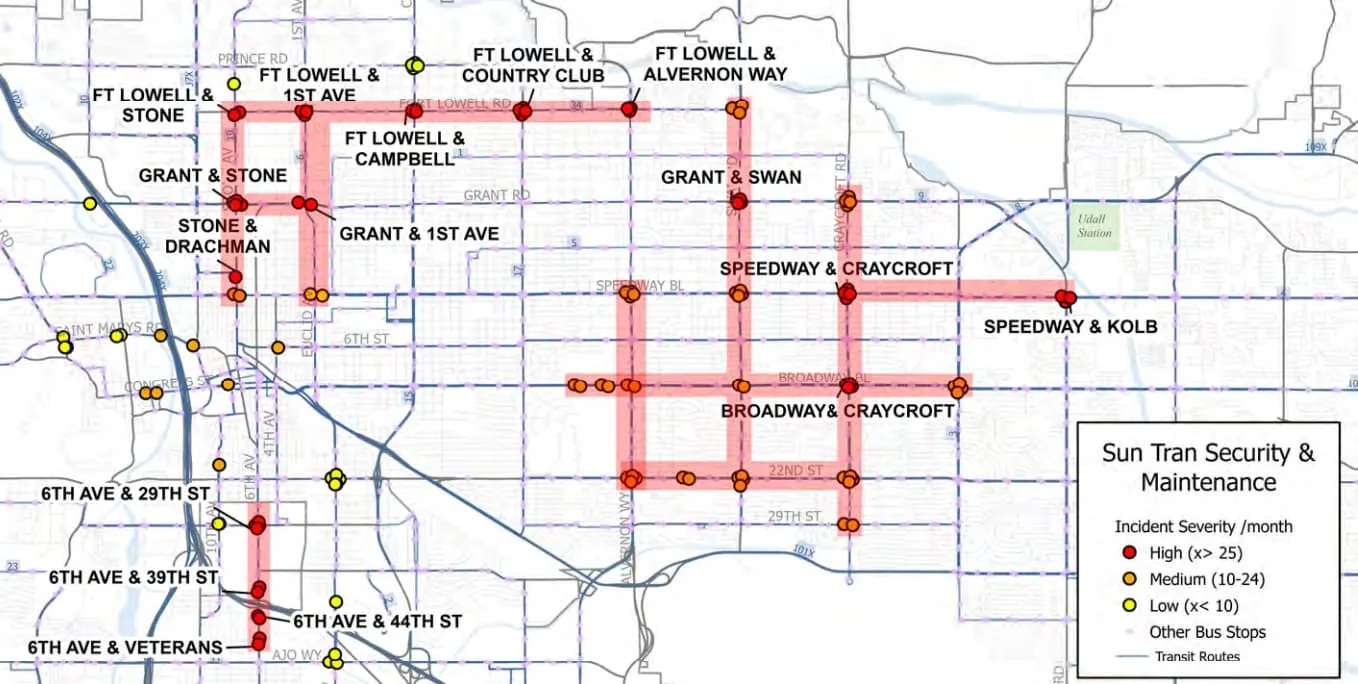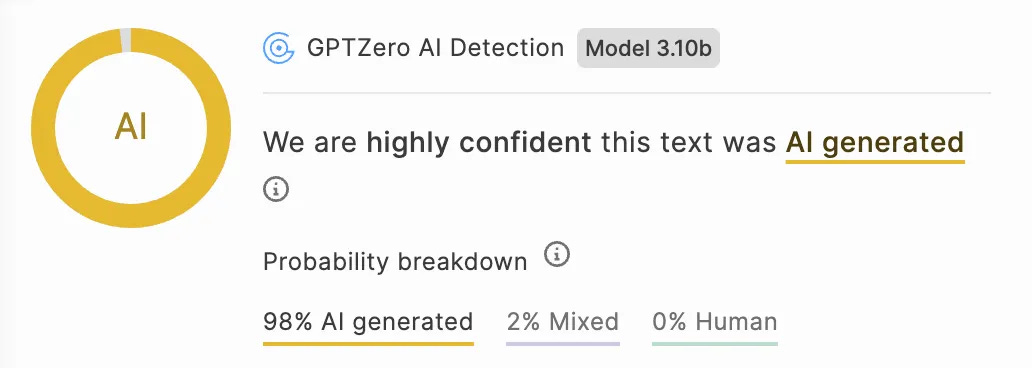Free rides meet hard choices
Free, or free-for-all? … Ciscomani speaks … And the angry memo AI wrote.
On paper, the Tucson City Council is set to spend its Wednesday afternoon study session talking about plans to make public buses safer.
Friend to friend? This conversation is also about fare-free transit.
The city budget includes funding to keep the buses free through the rest of the fiscal year, but the resources needed to properly address violence on buses and at bus stops will easily cost millions of dollars, on top of the $1.5 million the city already spends on bus security.
That’s millions of dollars extra that the city might not have without making some hard choices mid-budget year. One of those options could be scaling back fare-free rides, or at least limiting who qualifies for a free ride.
We don’t want to sensationalize crime stories or take lightly the fact that people have been killed or seriously injured while using the city-run Sun Tran system.
But we will note that Sun Tran drivers have made calls to their team in response to more than 15,000 individual “security events” since the start of the year. Sun Tran has clarified that these calls include dangerous incidents involving passengers and drivers, while medical emergencies would have drivers call 911.
The city’s 10-page memo goes into detail about current security challenges, such as widespread open-air drug use, loitering, and a perceived lack of enforcement — concerns echoed by both transit operators and passengers.

This issue has been brewing for some time, pulling in passengers, Sun Tran drivers, activists and even members of the Council. While the Council unanimously passed a budget with free fares, it remains divided on how to tackle safety.
In early August, Vice Mayor Lane Santa Cruz asked staff to develop an “action plan” for transit safety, and today’s meeting is a direct response to that request.
The memorandum outlines possible improvements, like upgrading infrastructure, adding more security guards, improving data coordination, and pursuing RTA Next funding to make transit safer.
What’s left unsaid is how much it will actually cost — and whether the funding outlined in the memo will be enough.
These plans might not go far enough for some Council members or critics of fare-free transit.
Their argument is straightforward: A large group of drug users, people with untreated mental illness, homeless individuals and criminals have taken over bus lines and bus stops.
Reporters and politicians have been riding the buses themselves this summer in an attempt to get a sense of how real the threat is. But those excursions haven’t produced a clear consensus about the scope of the problem in Tucson. Only that there is a problem.

The Zero Fares Tucson coalition is expected to make an appearance at the meeting. The group has urged members to contact the Council and show up at the evening session to speak during call to the public.
In an email to supporters, the coalition said the safety debate directly ties to whether the city can keep buses free long-term.
“To be clear, fares are not explicitly on the table but they remain very much a part of the conversation,” one organizer wrote.
During a Monday press conference organized by the local Teamsters Union, a Sun Tran driver who gave her name as Reyna said she is still recovering from a 2020 attack when passengers assaulted her with a fire extinguisher.
“I never expected a passenger might use that safety device to harm me. The next thing I knew, I had been struck in the head and was under assault. I haven’t been able to work since that attack. I suffer daily and I’m still receiving care,” she told reporters. “The consequences of not providing safe environment for the drivers is unacceptable and needs to be addressed.”
In a twist that bucks Tucson’s usual political script, the Teamsters union representing Sun Tran bus drivers threw its support behind Republican Jay Tolkoff instead of Democrat Miranda Schubert in the Ward 6 City Council race.
The union says its priority is safety for passengers and drivers, but several drivers at the press conference tied the rise in bus violence to the shift to fare-free rides.
While no one is openly saying it, endorsing a Republican candidate underscores the ongoing friction between the union and the current Council.1
It could also be a first step toward a strike.
In 2017, a labor dispute with the city lasted 42 days and ended with raises for drivers and more security measures.
If Democratic U.S. Sens. Mark Kelly or Ruben Gallego felt their ears burning yesterday, here’s why:
House Majority Whip Tom Emmer (R-Minn.) and our very own Republican U.S. Rep. Juan Ciscomani held a telephonic press conference with local reporters to talk about the shutdown. The pair of Republicans took turns blaming the two Arizona Democrats and urging them to back a continuing resolution (CR) to reopen the government.
Joe almost lost track of how many times Kelly and Gallego’s names came up.
Emmer even came armed with stats: He said every Democrat, including Kelly, voted for a CR 13 times2 under the Biden administration to keep the lights on. A quick reminder, Gallego took office earlier this year.
Both Republicans hammered home the same point — any CR needs 60 votes in the Senate to pass. And this means they need Democrats to support their CR.
Ciscomani told reporters he is willing to work on healthcare funding concerns raised by Kelly and Gallego, but wants the federal government to reopen first.
One comment stood out, though: Ciscomani casually referred to Adelita Grijalva as his “seatmate,” and told reporters she should be sworn in as soon as the House gets back to work after the shutdown ends.
On a side note, several local Democrats also held a press conference at the same time in Tucson — criticizing Arizona Republican gubernatorial candidates Andy Biggs, Karrin Taylor Robson, and David Schweikert for supporting President Donald Trump’s tariff policies.
Don’t do it: Days after the Trump administration offered the University of Arizona the chance to sign a compact, which would give the UA better access to federal funding in exchange for committing to Trump’s political agenda, the UA’s Faculty Senate voted overwhelmingly to reject the deal, the Tucson Sentinel’s Paul Ingram reports. There doesn’t appear to be any way to tweak the deal to make it less offensive. Trump officials said they’d accept “limited, targeted feedback” from universities, but the compact is “largely in its final form,” the Arizona Daily Star’s Prerana Sannappanavar reports.
Of course there’s a billionaire: Behind the scenes, billionaire Marc Rowan, CEO of Apollo Global Management, was one of the main people drafting and pushing the compact with universities. He circulated a document last winter that contained most of the measures in the compact, and in some cases, the exact wording, the New York Times reports.
We don’t have billionaire sugar daddies dictating our coverage. Will you give us some sugar?
Bad trip: Hernan Castro, a mycologist and big-shot in Tucson’s mushroom culture, has been locked up since May for checking a box on his application for citizenship stating he had never been arrested for drug-related crimes when in fact he had been arrested as a minor, the Phoenix New Times’ Stephen Lemons writes. His friends think he’s being targeted because he’s a high-profile Latino who deals in mushrooms, if only the legal kind.
Targeting judges: Cochise County Supervisor and former lawmaker Frank Antenori is hoping to tank the nomination of a local Superior Court judge pro tempore because she’s a Democrat, the Herald/Review’s Terri Jo Neff reports. Of the 14 applicants for the job, only Ann Borowiec convinced the mostly Republican judicial selection committee that she was the right choice. But that wasn’t enough for Antenori, who said he would vote against her based on “her and her firm’s political philosophy and ideology.” He wants the commission to send him a candidate “that better aligns with the beliefs and principles of the vast majority of Cochise County residents, specifically those I represent.”
Suing the president: The Pima Community College is going back into executive session today to discuss “Potential implications of recent U.S. Presidential and federal agency actions and related federal litigation.” While the agenda item is light on details, it’s pretty clear the district is gearing up for a legal fight with the Trump administration to protect funding for students.
In other, other news
The Trump administration’s 30-foot-fall bollard-style border wall across the San Rafael Valley between Nogales and Sierra Vista will drain groundwater from the region and trap roaming and migrating wildlife, including rare jaguars on one side of the border (John Washington / Arizona Luminaria) … The Pima County Recorder’s Office and Elections Office are getting new digs that won’t require them to cover ballots with tarps in case the sprinkler system accidentally goes off (Gary Grado / Votebeat) … And Pima County officials canvassed the results of the special election in Congressional District 7 yesterday — state officials must do the same by next Tuesday (Robbie Reynold / KVOA)
We get that people are upset that Congresswoman-elect Adelita Grijalva hasn’t been given the same preferential treatment as some Republicans who were sworn in immediately after winning their special elections.
But with everything going on in the world, calling this a “Betrayal of the Republic” seems a little over the top.
Especially when it’s a robot saying it.
The Pima County Democratic Party shot out an angry press release this week, blasting congressional Republicans for blocking the swearing in because Grijalva “WILL become the 218th vote on a discharge petition forcing the release of Epstein-related documents — records that have cast a shadow across the political class, elite institutions, and ‘untouchable’ men.”
“They point to the calendar like it’s a sacred text and mutter about rules and norms while disenfranchising 700,000 Arizonans,” the missive reads.
Now, as experts in detecting AI slop, that line caught our attention. In fact, the whole thing reeks of algorithmic word-predicting.
Just to be sure, we ran the press release through our trusty slop detector.
With the election roughly five weeks away, we should remind readers that up to three members could take office later this year.
We could only count to eight CRs, but it all depends on which votes you “count.” The current CR stalled in the Senate has been voted on five times so far, per Politico.







I just received a response from Congressman Ciscomani regarding my email urging him to do the right thing and advocate for the swearing in of Adelita Grijalva.
Ciscomani wrote that Speaker Johnson would swear in Adelita Grijalva when the House resumed. Ciscomani continued and wrote that, Should legislation come before the House concerning Adelita Grijalva, he would keep in mind my request that he do the right thing.
I got the feeling from Ciscomani's response that Adelita Grijalva would not be sworn in anytime soon.
I discovered my first AI detector on Grammarly last evening. First I took something written at my behest by ChatGPT, and it said that 0% of it was generated by AI. Then I took a diary entry I wrote in 1972 and it said that 100% of it was generated by AI.